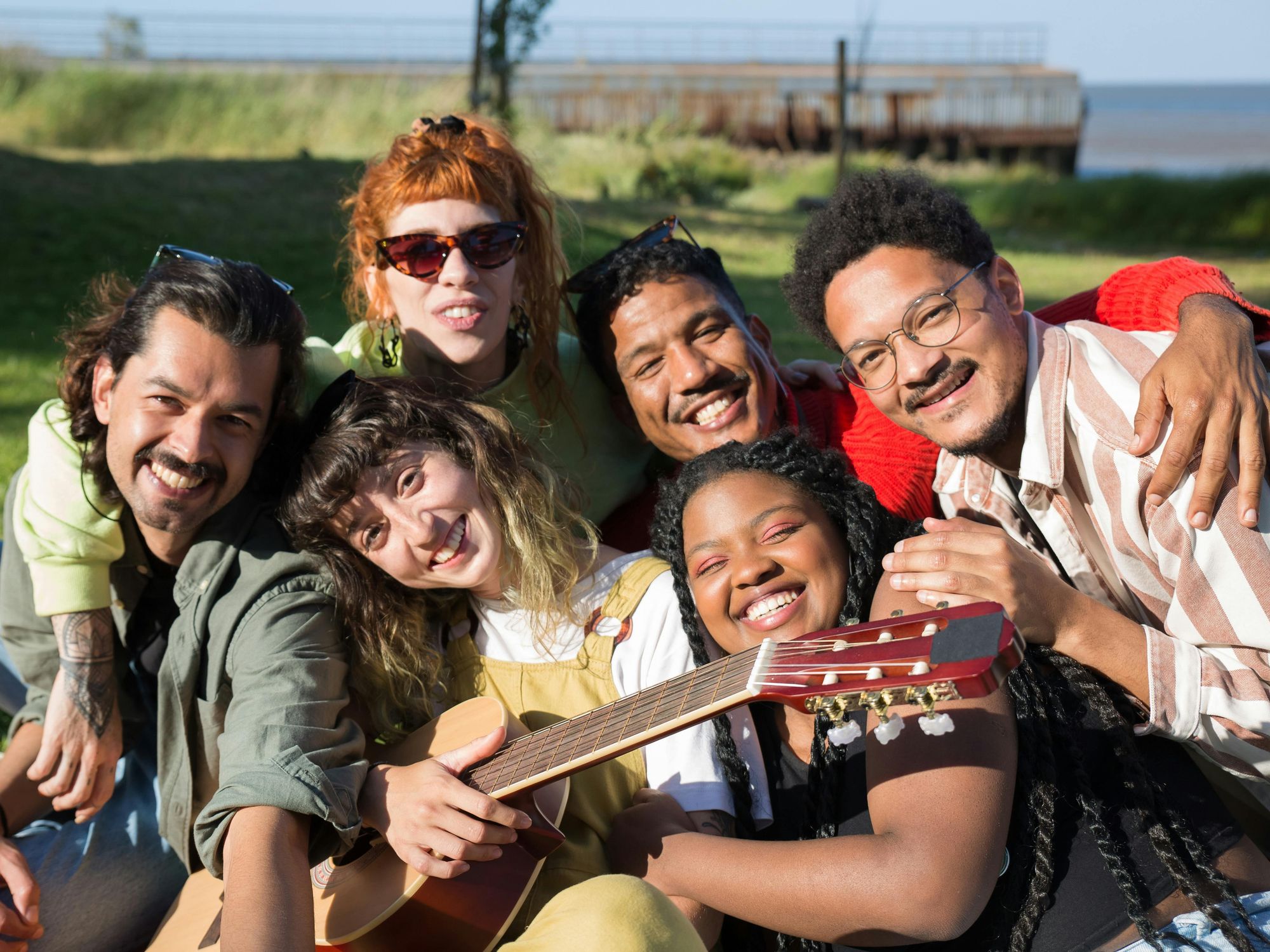
You might be surprised to learn how much of American pop culture is influenced by Latinos. From music and fashion to food and entertainment, Latinos have made major waves in shaping what we all enjoy today. Let’s dive into 10 iconic contributions from Latinos that you might not realize have left a lasting mark on pop culture as we know it:
Taco Tuesdays (and Tacos in General!)
 Photo by Tai's Captures on Unsplash
Photo by Tai's Captures on UnsplashLet’s start with everyone’s favorite—tacos! While Taco Tuesday has become a weekly ritual for many Americans, its roots are deeply Mexican. Thanks to the influence of Mexican cuisine, tacos have gone from street food in Mexico to a nationwide sensation in the U.S. and a go-to option around the world. Who doesn’t love a good taco, right? The next time you’re enjoying Taco Tuesday, thank Latino culture for the delicious tradition!
Reggaeton
 Photo by Panagiotis Falcos on Unsplash
Photo by Panagiotis Falcos on UnsplashIf you’ve ever heard a song by Daddy Yankee, Karol G, Bad Bunny, and more, you know that reggaeton is everywhere. With its roots in Puerto Rico, reggaeton’s infectious beats and bilingual lyrics have taken over the world. It’s not just a Latino thing anymore—reggaeton is a music staple that dominates playlists, clubs, and TikTok trends around the world.
The Cholo Fashion Trend

Photo by Wendel Natan
You’ve probably seen the Cholo aesthetic (think oversized flannels, Dickies, white tees, and bandanas) pop up in streetwear, music videos, and even runways. What started as a distinctive fashion statement within Mexican-American subcultures has become a symbol of cool, adopted by everyone from skateboarders to rappers. It’s a perfect example of how Latino street culture has influenced mainstream fashion.
The “Cha-Cha Slide” (Yep, We’re Claiming It!)
 en.m.wikipedia.org
en.m.wikipedia.orgThe “Cha-Cha Slide” is a party and wedding staple across America, but did you know it’s based on the cha-cha-cha, a Cuban dance style? This playful line dance, with its call-and-response directions, has roots in Latin dance traditions. It may have evolved into its own thing, but that rhythm and vibe definitely have Latino origins.
Flamin’ Hot Cheetos (You’re Very Welcome!)

Photo by Calgary Reviews on Flickr
Believe it or not, the legend behind Flamin’ Hot Cheetos has Latino roots. Richard Montañez, a former janitor at Frito-Lay and the son of Mexican immigrants, came up with the idea to spice up the regular Cheetos. His creation became a cultural phenomenon, especially within Latino communities, and has since become an American snack-time favorite. The Flamin’ Hot craze even inspired a movie!
Lowrider Culture
 Photo by Yasamine June on Unsplash
Photo by Yasamine June on UnsplashLowriders, the iconic cars that ride low and bounce with hydraulic lifts, are a staple of Chicano culture. What started in Mexican-American communities in the '40s and '50s evolved into a full-blown car culture that has had a major influence on hip hop, fashion, and even movies like “Fast & Furious.” Today, lowriders are symbols of craftsmanship, pride, and identity.
Zumba: The Workout Dance Party
 Photo by Danielle Cerullo on Unsplash
Photo by Danielle Cerullo on UnsplashIf you’ve ever taken a Zumba class, you know how fun (and sweaty) it can be. This Latin-inspired fitness craze was created by Colombian dancer and choreographer Beto Pérez, and it’s become one of the most popular group workouts worldwide. Zumba combines Latin music and dance moves with an aerobic workout, making it a high-energy, cultural way to get in shape. It’s practically a cardio fiesta!
Hoop Earrings
 Photo by Andrea Esme on Unsplash
Photo by Andrea Esme on UnsplashHoop earrings have a long and rich history in Latino culture, and they carry so much more meaning than just being a stylish accessory. Worn by women across generations, hoop earrings symbolize strength, resilience, and empowerment. In Indigenous and Afro-Latino cultures, hoops have been seen as a form of self-expression and cultural pride, representing the idea of coming full circle—where everything is connected.
Día de los Muertos in Mainstream Culture
 Photo by Nick Fewings on Unsplash
Photo by Nick Fewings on UnsplashThe traditional Mexican holiday Día de los Muertos (Day of the Dead) has made its way into American pop culture, especially through movies like Coco and The Book of Life. Both films brought the holiday’s beautiful rituals of honoring deceased loved ones to the big screen, making it a celebration that many non-Latinos have embraced. It’s now common to see Día de los Muertos-inspired makeup, art, and décor during the Halloween season.
Salsa Dance and Music
 Photo by Ardian Lumi on Unsplash
Photo by Ardian Lumi on UnsplashSalsa music and dance have taken over dance floors across America, and you can thank Cuban and Puerto Rican communities for that spicy, rhythmic explosion. The fusion of Afro-Cuban beats and Latin jazz evolved into salsa, and now, it’s one of the most popular Latin dances worldwide. If you’ve ever busted a move at a salsa club or had the beats make you sway, you’re feeling the power of Latino influence.
Latinos have been shaping and redefining American pop culture for generations, whether through food, fashion, music, or even fitness. The beauty of it all is that these contributions continue to evolve, influencing new generations and spreading joy all over the place. So next time you’re busting a move to that reggaeton song, enjoying tasty food, or getting your cardio on in Zumba, you know who to thank!









